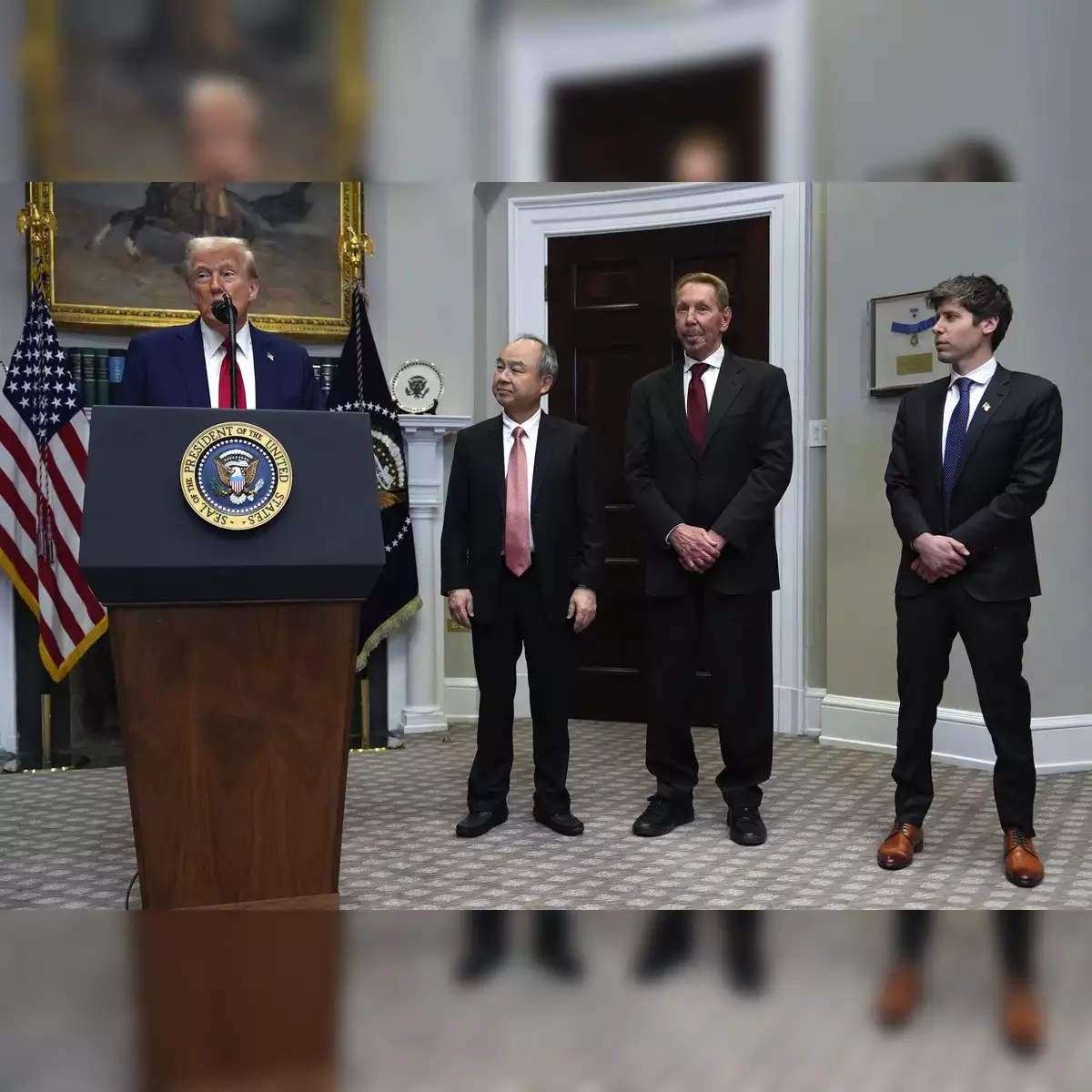Former U.S. President Donald Trump is poised to announce a significant initiative involving OpenAI, SoftBank, and Oracle to bolster the nation’s artificial intelligence (AI) infrastructure. The plan, aimed at strengthening U.S. leadership in AI, reflects growing bipartisan recognition of the technology’s strategic importance for economic growth and national security.
Key Components of the Plan
The initiative is expected to focus on expanding AI capabilities across industries and ensuring the U.S. remains competitive in the global AI race. Early reports suggest the following priorities:
- AI Data Centers:
- Oracle and SoftBank are set to lead efforts to build state-of-the-art data centers optimized for AI workloads. These facilities will support advanced computing needs for government agencies, businesses, and researchers.
- Public-Private Partnerships:
- OpenAI will play a central role in developing cutting-edge AI models for critical sectors, including healthcare, defense, and education. Collaborative frameworks will enable the private sector to contribute innovation while adhering to federal guidelines.
- Education and Workforce Development:
- The plan will emphasize training programs to develop a robust AI-skilled workforce, addressing the growing demand for talent in AI and machine learning.
- AI Ethics and Regulation:
- Establishing a framework for ethical AI use is expected to be a cornerstone of the initiative. Trump’s plan will likely propose guidelines to address concerns about bias, data privacy, and the responsible deployment of AI.
Implications for U.S. AI Leadership
The proposed plan could have far-reaching impacts on the U.S.’s position as a global AI leader:
- Economic Competitiveness:
- By investing in AI infrastructure, the U.S. aims to drive innovation and economic growth, potentially adding billions to the GDP.
- Strategic Independence:
- Enhanced AI infrastructure would reduce reliance on foreign technologies, ensuring greater control over critical systems and data.
- Global Collaboration:
- Partnerships with global players like SoftBank signal a willingness to engage in international cooperation while maintaining U.S. interests.
Challenges Ahead
Despite its ambitious goals, the plan faces several challenges:
- Funding and Execution:
- Building and maintaining AI data centers and training programs will require significant investment and long-term commitment.
- Bipartisan Support:
- Securing broad political backing may prove difficult, particularly in a polarized environment.
- Ethical Oversight:
- Ensuring AI development aligns with societal values while addressing biases and security risks will be critical.
Industry and Political Reactions
- Tech Sector:
- Industry leaders have expressed cautious optimism, emphasizing the importance of public-private collaboration in driving innovation.
- Policy Analysts:
- Experts have noted that any meaningful AI strategy must address regulatory gaps and foster international competitiveness.
- Political Landscape:
- Trump’s plan is likely to spark debate, with proponents highlighting its vision and detractors questioning feasibility and priorities.
Conclusion
As the global AI race intensifies, Trump’s forthcoming initiative represents a bold step to secure U.S. leadership in this critical domain. By leveraging partnerships with leading AI and tech firms, the plan seeks to position the U.S. at the forefront of innovation, driving economic and strategic benefits for years to come.
For more information, visit Semafor.





